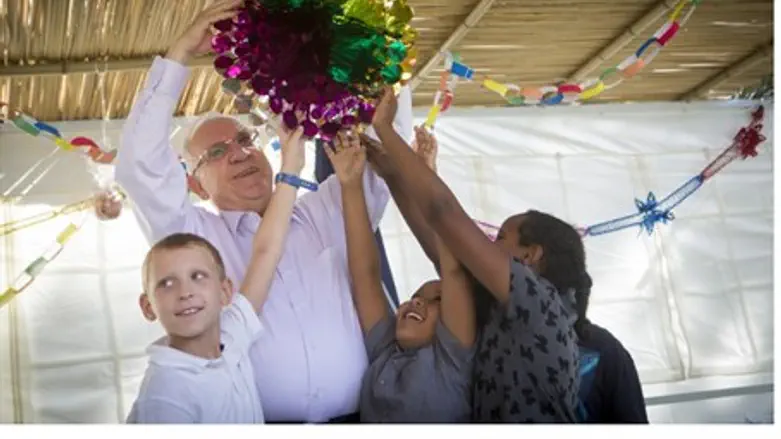
Millions of Jews began on Wednesday to celebrate the seven-day holiday of Sukkot in which they construct booths called sukkot (singular: sukkah) near their homes.
Sukkot (known as the Feast of Tabernacles in English), one of the three major festivals (shlosha regalim) of the Jewish calendar in which, in Temple days, the Jewish people were enjoined to "go up to Jerusalem."
In Biblical times as today, it was a harvest holiday for summer crops and grapes, a water holiday that included prayers for winter rains, gratitude for the land of milk and honey, and as always in Judaism, remembrance: reenacting the years in the desert when the Israelites dwelled in sukkot (booths), protected by G-d's clouds of glory by day and a column of fire at night. That is done by eating and spending time, entertaining, lighting holiday candles - and for many, even sleeping - in a sukkah.
Israel was in the throes of a building boom for the past week, as everyone – observant and less observant – prepared for the holiday by building and decorating Sukkot and choosing the “Four Species.” Large market areas were set up for buying wood, schach (the "roof" of the sukkah which must be of plant origin and not be attached so that its temporary nature is clear), and the Four Species: an etrog (citron), a lulav (palm frond), three sprigs of hadas (myrtle) and two branches of arava (red willow). These have to meet halakhic specifications, so it is recommended to purchase them from a reliable source or buy a ready made set with rabbinic certification.
The lulav and etrog are blessed each morning - women and children usually do this at home while men do so at morning synagogue services, the lulav held in the right hand and the etrog in the left with the stem end (oketz) facing upward until the blessing is said, after which the etrog is turned so that the tip (pitom) faces upward.
The Four Species are waved in six directions: east, west, north, south, up and down during the Hallel prayer and then carried in a march around the synagogue for the Hoshanna ("Save us") prayer each morning of the holiday excepting the Sabbath.